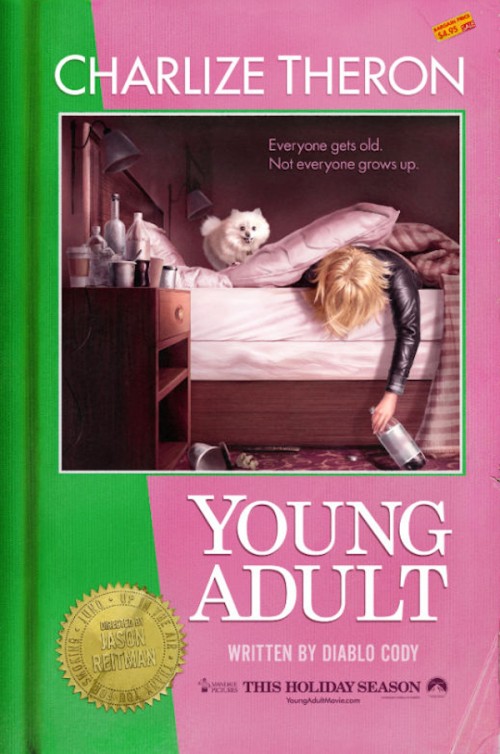This/That
The Dzanc Sessions, coordinated by Anna Leigh Clark, look pretty interesting. Session One classes begin the week of October 16. Each class spans eight or ten weeks. The content of the class is the same regardless of the time span; it is merely accelerated in the eight-week version. Eight-week Session One classes run through the week of December 4. Ten-week classes run through the week of December 18. Session Two will begin the first week of January 2012 with another eclectic line-up of workshop opportunities. The price for workshops is $325 Cost includes a three-month membership to the Dzanc Books eBook Club. (Or, if you do not have an e-reader, you can select a free copy of any print title from Dzanc Books.) The bulk of your registration fee supports the non-profit work of Dzanc Books. A portion of it supports the work of your instructor and the administration of the Dzanc Sessions.
Anna also has a great roundup of literary things here.
Don’t forget that the new Literary Magazine Club discussion begins on November 1. You can find details on ordering the magazine we’ll be reading, Beecher’s here.
Emily Books. What do you guys think of the concept? I’ve talked about how we’re inundated by books these days and it’s hard to know what to read. I’ve also talked about Vouched Books, where Chris Newgent personally vouches for the books he sells and is both able and willing to talk about any title he caries (from a limited, curated selection). That intimacy makes it easy to get on board with taking a chance on writers we’re not familiar with and I’ve enjoyed learning about books I wouldn’t ordinarily come across at his table. Emily Books seems to do something similar. They feature one title a month, selling only e-books. There’s also a book club… if you live in NYC. A bookstore that only sells one book at any given time is intriguing. This has kind of been done before but I’m interested in future selections and seeing if other people adopt similar approaches to bookselling.
Does Timothy McSweeney have a white savior complex? I found this essay really thought provoking and it introduces interesting questions about cultural representation and the consequences of getting “it” wrong or right (via Jackson Nieuwland).
The Occupy Wall Street library has a blog worth checking out (via Bookslut).
Writer’s Relief is having a contest to support literary magazines.
The new TV season is kind of disappointing, right? I haven’t seen anything yet that I must watch.
The last two books I enjoyed: Blueprints for Building Better Girls by Elissa Schappell (not perfect but very immersive and more complex than I initially realized) and Reality Bites Back by Jennifer Pozner (very incisive). Don’t read that latter book unless you want your enjoyment of reality television to be ruined forever (I kid, mostly).
There is an encyclopedia of science fiction. I wonder what an encyclopedia of literary fiction would look like. Divorce: In literary parlance, the dissolution of a marriage as a narrative catalyst to explain character motivations such as drinking, promiscuity, bitterness, and tear-stained arguments. See also: the children.
Death x 3: Frances Bay, Curtis White on lit’s (lack of) future, & “Why Originality Isn’t All That Important”
1. Charles Napier isn’t the only one who’s left us: Frances Bay passed away last month. No creamed corn was served at her memorial service.
2. My mentor Curtis White wrote something pretty pessimistic at Lapham’s Quarterly about the future of literature.
3. I wrote something a little more optimistic about why originality isn’t all that important.
Six Late Afternoon Items
1.
2. Huffington Post is getting into the e-book business.
3. Chris Newgent asks poets to rise up.
4. You should read Vanessa Veselka’s Zazen. It’s a fierce book. I didn’t realize this when I bought it but you can read the entire book online, for free. You should also buy it though.
5. The Awl has a really interesting essay on cookbooks as literature.
6. Kenyon Review is offering fellowships that pay $32,500 to writers with an MFA or PhD looking for some time to write and grow as a teacher.
Saturday Afternoon Links Because Rain Threatens
Robert Lipsyte wrote for the New York Times that boys aren’t reading. The Rejectionist neatly sums up everything that’s troubling about Lipsyte’s piece.
At the Los Angeles Review of Books, Emily Green writes about how her work was plagiarized.
Anna Clark wrote a lovely essay about writing, necessity, heat, performing the role of writer and more.
That essay was inspired by this week’s Dear Sugar which is also well worth the read. That column is always worth reading.
White Readers Meet Black Authors has a list of fall releases including Percival Everett.
Maud Newton offers a really interesting take on how DFW has stylistically influenced the way we argue on the Internet, and not for the better.
Fuckscapes by Sean Kilpatrick is available for pre-order from Blue Square Press.
My favorite new Tumblr is Fashion It So which takes a close look at the beautiful fashions of Star Trek: TNG.
Late Afternoon Links
The Pen American Center has announced the 2011 award winners. I was particularly pleased to see Danielle Evans win the fiction prize for Before You Suffocate Your Own Fool Self.
Stacy May Fowles suggests that one way to address the gender imbalance in literary publishing is for men to stop submitting to those magazines who have serious gender imabalances among their contributors until those magazines rectify the disparity. I disagree with the suggestion because the responsibility belongs to editors, not writers, but her argument is interesting.
At the Texas Observer, Brad Green’s story, “Fixing Miss Fritz,” is worth a read or three.
Glenn Beck has something of a literary career and Laurie Winer offers some insight on that career, such as it may be.
In this interview, Dinty Moore talks about what he looks for in submissions and other things.
Late Night Links
Flip Zembowicz has created an interactive character map for A Visit From The Goon Squad. I happened to read this book today so it was fun to stumble across this (via Sarah Malone).
Speaking of Jennifer Egan, she recommends sixty books that have been critical to her in some way.
If you were ever curious about what literary characters throughout history might wear today, there’s a site for that.
The list of panels accepted for AWP has been released.
Tom Lutz’s essay, Future Tense, at the Los Angeles Review of Books, is well worth the read.
Kathy Fish’s Wild Life is available for pre-order by Matter Press.
In the August issue of Bookslut, Elizabeth Buchner writes about reading humiliation.
Late Night Links
Anna Clark offers a reading list for narrative nonfiction. Along those lines, longform nonfiction might be enjoying a surge in popularity.
At The New Republic, Ruth Franklin talks about writing about captivity.
Did you know Colson Whitehead is writing about The World Series of Poker for Grantland?
The Atlantic’s Fiction 2011 issue is now online.
More reading: Sarah Malone at the Good Men Project and Gabe Durham at Route 9.
By the way, you can take a free online class in artificial intelligence at Stanford this fall.
Everything I’ve read so far this year with brief notes

When Marina Abramović Dies: A Biography by James Westcott * * * Read a lot of this in a bathtub where it was cold out and the tub was warm after Scott McClanahan suggested I’d like it; I did like it; reading about her life dedicated to making these insane performances seemed really motivating, and that time can be put to good use over periods. I like to think about the phases of her life.
The Last Samurai by Helen DeWitt * * * * Had tried to read this before and lost the book before I got really going; it has such an insanely beautifully orchestrated opening section, one of the sharpest I’ve read in a while, while still having narrative; she does a lot in this book that seems like nothing I’ve seen elsewhere, orchestrated almost entirely around the relationship between a mother and son; loved.
Termite Parade by Joshua Mohr * * * * Really liked the sections about the conceptual video project in this book; he has a good edge to his voice, a good mix of action and idea; looking forward to his next one in the trilogy, Damascus.
The Loser by Thomas Bernhard * * * * Different for Bernhard in a way; really enjoyed reading about Glenn Gould and the two minds of the friends there in their jealousy of his mastery; suicide is always compelling to read about; the last page of this book wins it.
The Book of Lazarus by Richard Grossman * * * * Reading this book felt insane, like being locked up in a cabinet or something; I like thick books that have pages that move quickly, like you are swimming.
“On Writing” Roundup
For easier access, by request, here’s a roundup of all our “On Writing” posts, with craft thoughts by:
Lynette “Squeaky” Fromme
Coco
GZA
Delonte West
Mark Rylance
Kenneth Anger
Damien Hirst
Anton LaVey
Prince
Gerhard Richter
Judy Garland
Kimora Lee
Peyton Manning
Mark David Chapman
David Tudor
Nassim Nicholas Taleb
Bill Evans
Ted Bundy
Ray Lewis
Andre Agassi
Wu-Tang
Aleister Crowley
Grace Jones
Liz Fraser
John Holmes
Floyd Mayweather
Klaus Kinski
Pier Paolo Pasolini
Ron Artest
Louise Bourgeois
Gustav Mahler
Iggy Pop
R. Kelly
Captain Beefheart
Dee Dee Ramone
Kool Keith
Mike Tyson
Two Things
I’m working on some longer things to post here over the next couple weeks but in the meantime:
At Slate, Robert Pinsky offers three rules for writing a book review.
Anil Dash writes about how to foster productive online communities on your website by managing comment threads.

